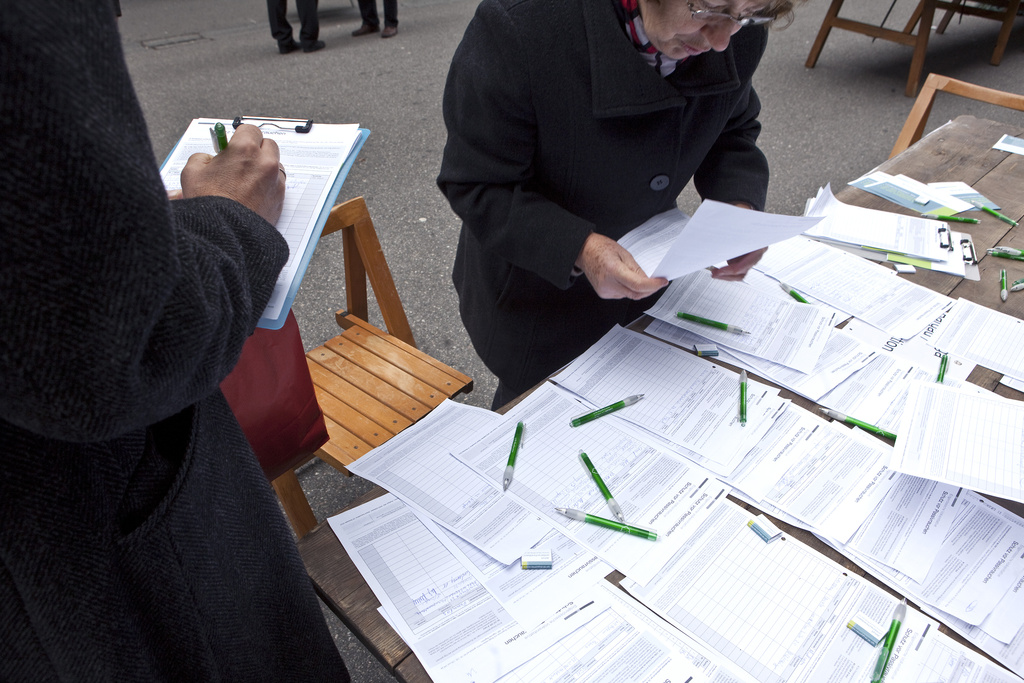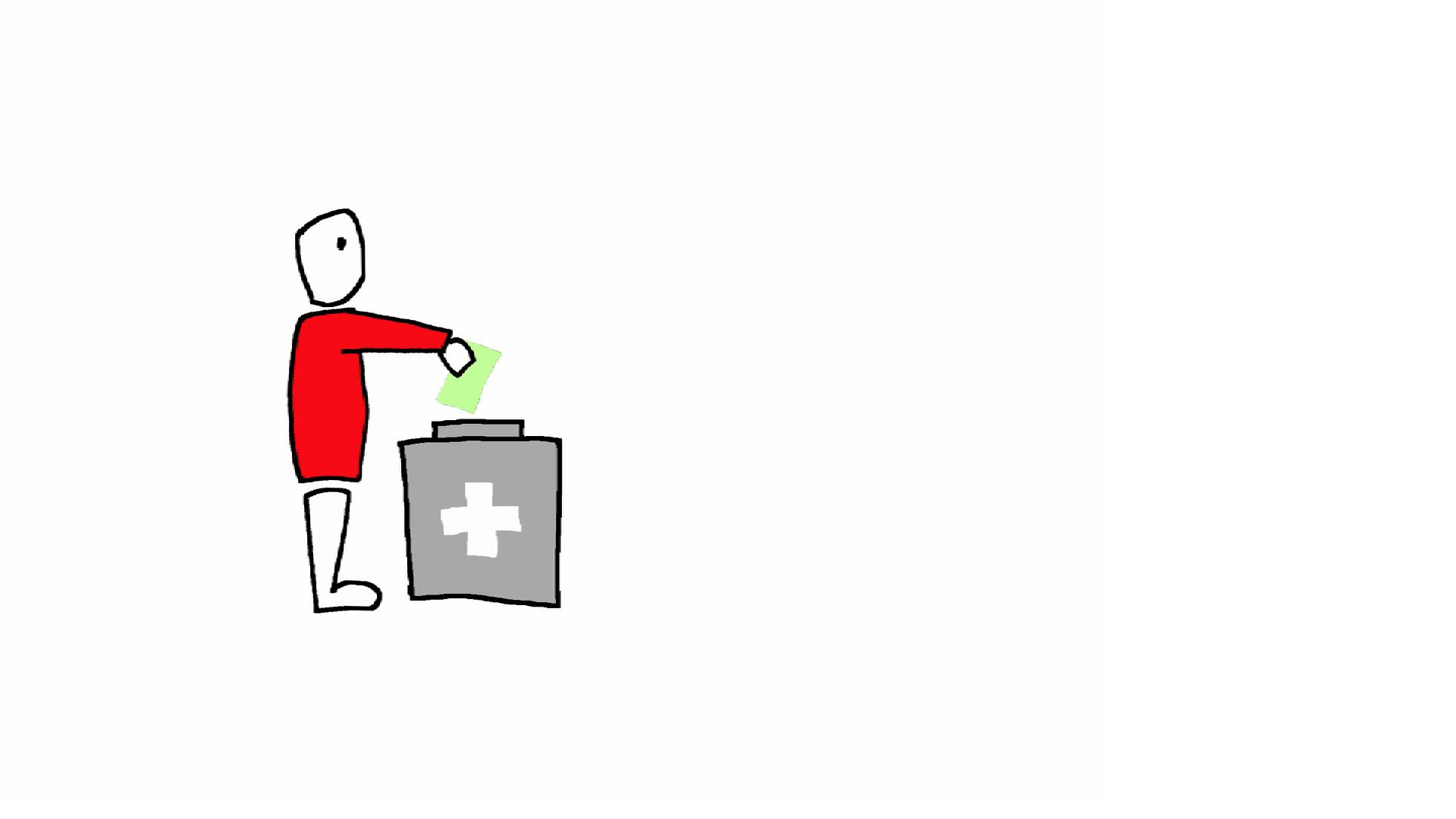Anti-EU group seeks bigger say on foreign policy

Conservative isolationists want to give voters the final say on international treaties, defying the government and parliament. The issue, backed only by the political right, comes to a nationwide ballot on June 17.
Billed as an initiative to boost direct democracy, the Campaign for an Independent and Neutral Switzerland group argues ordinary citizens have a better sense of foreign policy than the political elite and the business community.
Pirmin Schwander, president of the group and parliamentarian for the rightwing Swiss People’s Party, says there is one lesson to be learnt from the recent past.
“The bigger the number of people who can have a say the better things turn out in the end,” he said at the launch of the public campaign to convince voters.
His fellow parliamentarian Luzi Stamm added: “Unlike the banks, the business community, politicians and, dare I say it, the media, citizens are less likely to cave in to pressure and blackmail.”
The group believes it would be a trump card in the hands of the cabinet if – under Switzerland’s cherished system of direct democracy – it was clear to negotiating partners like the European Commission that it wasn’t the Swiss government but the country’s electorate who has the final say.
The isolationists make no secret that their initiative is aimed at blocking what they see as the government’s efforts to “seek Switzerland’s backdoor entry into the European Union.”
Their proposal foresees that every “important international treaty” – committing Switzerland to take over multilateral rules or the payment of certain financial contributions – should be put to a mandatory nationwide vote.
Under the current system, only major accords, including membership of international organisations, are decided at the ballot box. In other cases, a vote can be called by challenging a parliamentary decision to a referendum, which needs the collection of at least 50,000 signatures within 100 days.
Damage
Opponents say the initiative creates an unwieldy system, damaging Switzerland’s reputation as a predictable partner at the negotiating table and jeopardising the competitive edge of the country’s economy which has to be able to rely on legal certainty.
“The initiative is unnecessary and does more harm than good,” say Gerhard Pfister and Kurt Fluri, parliamentarians of the centre-right Christian Democrats and the Radicals respectively.
Most political parties, not only on the left but also in the political centre, argue the proposal by the isolationists risks undermining not only Switzerland’s cooperation on the international scene but puts an unduly heavy burden on the system of direct democracy.
Voters would be called up around 500 times a year and decide on a host of highly technical and uncontroversial issues.
“You do not boost democracy by letting voters have a say on everything and nothing. But it is crucial to vote on essential matters,” says Adèle Thorens of the Green Party.
Misnomer
Justice Minister Simonetta Sommaruga says the initiative is a misnomer and goes too far, making empty promises and creating extra costs.
“Under the current system Swiss voters already get a say on foreign policy,” she says. “Those who measure the quality of direct democracy with the number of votes show a distinct lack of confidence in the legitimacy of state institutions.”
Economics Minister Johann Schneider-Ammann warns of complications in crucial negotiations for a country which relies on its export industry, saying it is not wise to create delays and legal uncertainty in a world of globalised business.
“Switzerland’s reputation as a reliable trading partner is at stake. We gain every other franc in the export sector which contributes to the country’s prosperity,” he says.
According to the State Secretariat for Economic Affairs the export industry thrives particularly in markets and countries where Switzerland has concluded treaties.
Funds and facts
Observers have pointed out the early campaign start by opponents of the initiative. The government and the leading committee against began vying for public attention back in March, apparently showing the high significance they give to the vote.
Promoters of the initiative rolled out their campaign one month later. They explained they would spend about SFr1 million ($1.1 million), five times less than the Swiss Business Federation.
The isolationist group publicly decried the fact that the business community gave them the cold shoulder.
Nor can they count on facts presented by an independent think tank, Foraus, which examined the use of referendums on foreign policy issues over the past 90 years.
The authors say that of the nearly 300 international treaties which could have been challenged under the current referendum rights only ten were contested.
The study also shows that the number of mandatory votes on foreign policy issues would have multiplied by a factor of 13 for the period after 1981 alone.
Apart from the foreign policy issue voters also have the final say on two other issues:
A proposal to grant tax breaks to prospective home owners
A ballot on a parliamentary decision to promote the introduction of a Managed Care health system
Around 5.1 million citizens are eligible to take part in the ballots, including 164,000 voters – notably Swiss expats – who can use e-voting as part of an ongoing trial with the technology.
As a rule, nationwide votes take place four times a year on a broad range of issues. Parliamentary elections are scheduled every four years.

In compliance with the JTI standards
More: SWI swissinfo.ch certified by the Journalism Trust Initiative














You can find an overview of ongoing debates with our journalists here . Please join us!
If you want to start a conversation about a topic raised in this article or want to report factual errors, email us at english@swissinfo.ch.